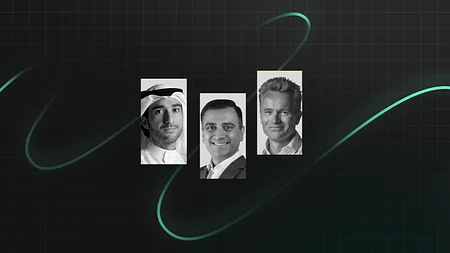Banks should use Open Banking to drive environmental behaviour change

COP26 is over. But the climate emergency is still with us. The headlines might say otherwise but I got the feeling that very little progress was made on climate change.
This is taken from our Unfiltered newsletter. Subscribe now for a no BS, uncensored analysis of fintech news and hot topics delivered to your inbox each fortnight.
China largely chose to ignore COP26 but will be reasonably satisfied, along with India, on the watering down of language related to burning coal. This allows them to continue building new power plants, although at a slower rate than in recent years. So there’s a crude summary of the global picture on climate change. People care. Nations guard their interests. Conference delegates claim success. The climate emergency continues. It all feels a little depressing and leaves us feeling powerless. The worry index published by the ONS showed that 35% of 25-34 year olds were 'very worried' about climate change. Even the over 70s clocked in at 25%.
Financial services can, and should, leverage this information. Open Banking is a great tool for informing fintechs and banks and driving real behaviour change. There aren’t enough companies taking advantage of this opportunity at the moment. It could enhance their bottom line and set them on the right path to delivering genuine customer-centric propositions.
Open Banking is a great tool for informing fintechs and banks and driving real behaviour change.
There’s a well-known management truism that you can only manage what you can measure. There are some pitfalls in this way of thinking but stay with me. In a similar data-oriented vein there’s the ‘Quantified Self’ - how we measure ourselves.
You could argue that the Fitbit equivalent of my economic consumption is my bank account. Here are recordings of my financial life. A financial life that very closely matches consumption related to carbon. If only we could convert that bank data into something that revealed my carbon footprint.
The good news? The technology is out there and being used already. We just need a lot more people to start using it! Granted, there are some gaps in the data. I might have more than one bank account. I might have multiple credit cards and I might even be spending crypto. However, with Open Banking there is hope. Open Banking allows me to authorise the collection of my data from the financial services firms I use and aggregate it as I see fit. Dashboards, trends and alerts are all possible.
Firms like Meniga do a good job of stimulating the market through their service which categorises spending as recorded by banks. They recognise the consumer demand/concern and offer innovation workshops to help banks stimulate interest. They use certified data sources from dedicated providers. You can trust the measurement and the methods used but there’s still more to be done. Getting the details that prove tricky. I might spend £250 on a British Airways ticket but how far did I fly? If I shop at a supermarket, how do we measure expensive and carbon emitting blueberries from Peru compared to a local turnip?
Open Banking can also be used to aggregate my spend from cards and different accounts. Most apps tend to categorise carbon by existing bank spending categories. In this way you end up with broad categories (food, transport, etc.) which don't really tell you enough and are much harder to use to stimulate meaningful changes in behaviour.
And yet we know the data exists. We know how many Kazakh cows make a steak. We know how far Costa Rican bananas travel. Once we’ve managed to locate and aggregate this data, we can be more precise and help consumers pinpoint the parts of their lives where they can make climate positive choices.
Even after we gather the right data, there’s a lot to be done. Consumer buy-in shouldn’t be an issue (see worries above). But how should this information be displayed? What sort of comparisons do I want to make? How should it all be explained? This needs to be handled carefully. The message needs to be crafted to be informative and supportive. If I feel like I'm getting told off all the time, will I stay engaged? The UX is critical and for this, of course, you need to understand the customers’ Jobs to be Done.
Banks would do very well out of all of this.
We all know that banks struggle with engagement. For many of us logging into our bank’s app is a ‘distress’ action. We need to pay someone, we need to check something. What if there was something in there that was more positive? Something that could incentivise me to make a change to help with something I care about? Banks could use the increased eyeballs to tap new revenue streams. Advertisers could pay to position their products and even allow in-app calls to action to help consumers improve their carbon footprint. Online retailers could generate carbon receipts inside shopping baskets and offer alternative, lower carbon items. A few neobanks are doing something similar by analysing utility bill spend and benchmarking against other properties. The demand for similarly designed but climate-oriented user experiences would be strong.
We all know that banks struggle with engagement.
My unfiltered opinion
Banks could take this further by enabling customers to set carbon targets for their spending and let them know when they are reaching their ‘limit’. The increased traffic to your banking app would easily be worth the cost of implementation and would surely increase those stubborn Net Promoter scores. Banks should be jumping at this opportunity to do the right thing by their customers and the planet. Bank marketing slogans claim that they are ‘there for you’ or can ‘help you have the life you want’. Wouldn’t it be more believable if they simply helped you better manage your own carbon footprint?
So there we have it. An unmet need, a bit of data analysis and an industry that is struggling to innovate. All you need is a world class UX, loads of fintech experience, some clever techies and the ability to handle working in the regulated banking world.



